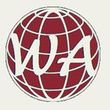Methods workshops
The PTJK2018 conference provides a forum for the exchange of knowledge and best practices. With this in mind, we decided to offer methodological workshops on a variety of research techniques. Although these workshops are designed primarily for researchers at the early stages of their careers, all participants are welcome to join. Detailed descriptions available soon WORKSHOP 1: Designing eye-tracking experiments in linguistics Dr. Paweł Korpal and Olga Witczak, MA WORKSHOP 2: Development of Experimental Procedures in Linguistics (with E-prime) Dr. Halszka Bąk and Bartosz Brzoza, MA WORKSHOP 3: Introduction to Statistics in Corpus Linguistics with R Dr. Karolina Krawczak and Prof. Dylan Glynn WORKSHOP 4: Gesture research with the Microsoft Kinect motion sensor, KINEMO and ELAN Dr. Anna Jelec, Dr. Konrad Juszczyk and Dr. Ewa Jarmołowicz-Nowikow
Designing eye-tracking experiments in linguistics Dr. Paweł Korpal and Olga Witczak, MA In line with the eye-mind assumption (Just and Carpenter 1980), visual focus from eye movements is considered a correlate of cognitive effort in tasks demanding attention (Hvelplund 2014: 209ff). This means that one can investigate information processing by tracking where people look. However, the link between visual and cognitive focus is not as straightforward, which introduces challenges on the level of experimental design. During the workshop we will talk about such challenges in designing eye-tracking experiments in linguistics on the basis of research conducted in the field of Translation and Interpreting Studies, taking into account both the benefits of this technique as well as its constraints. The workshop will start with a theoretical introduction and then we will provide a practical demonstration of an eye-tracking recording session and data analysis. The final part of the workshop will consist in an interactive brainstorming and feedback session, during which the participants will be presenting their own research ideas for an eye-tracking study in the field of (cognitive) linguistics. References: Hvelplund, Kristian Tangsgaard. 2014. “Eye tracking and the translation process: reflections on the analysis and interpretation of eye-tracking data,” MonTI. Monografías de Traducción e Interpretación: 201–223. Just, Marcel A. and Patricia A. Carpenter. 1980. “A theory of reading: from eye fixations to comprehension,” Psychological review 87, 4: 329–354.
Development of Experimental Procedures in Linguistics Dr. Halszka Bąk & Bartosz Brzoza, MA In this workshop participants will learn about the basics of experimental design in linguistics. The fundamental aspects presented will include posing research questions, formulating hypotheses, determining variables and developing valid stimuli. Participants will be familiarized with the most recent linguistic experimental frameworks in the course of practical demonstrations of experimental procedures with reaction time measurement. Participants will perform hands-on tasks in the E-Prime software and will attempt to translate their research ideas into the language of research design.
Introduction to Statistics in Corpus Linguistics with R Dr. Karolina Krawczak and Prof. Dylan Glynn The workshop will be entirely practical and is designed for beginners in (categorical) multivariate statistics. It will introduce a simple corpus methodology, applicable to a wide range of Cognitive and Functional research questions. Although this methodology draws on traditional linguistic analysis, it combines it with advanced multivariate statistics. The workshop will focus on these statistical techniques – how to apply them and how to interpret the results, using the free statistical program R. We will only work with count data (typical of corpus linguistics, text analysis, sociolinguistics etc.), and not with measured data (typical of psycholinguistics, phonetics etc.). Essential will be a laptop with operational Internet (using one of the university’s WiFi services). No previous knowledge of corpus linguistics, statistics or R is expected. If all goes well, we will look at three multivariate techniques: correspondence analysis, cluster analysis, and logistic regression.
Gesture research with the Microsoft Kinect motion sensor, KINEMO and ELAN Dr. Anna Jelec, Dr. Konrad Juszczyk and Dr. Ewa Jarmołowicz-Nowikow description soon

 Polska wersja
Polska wersja